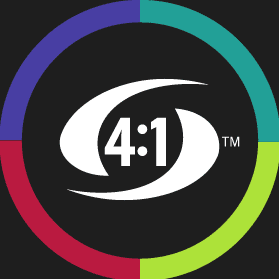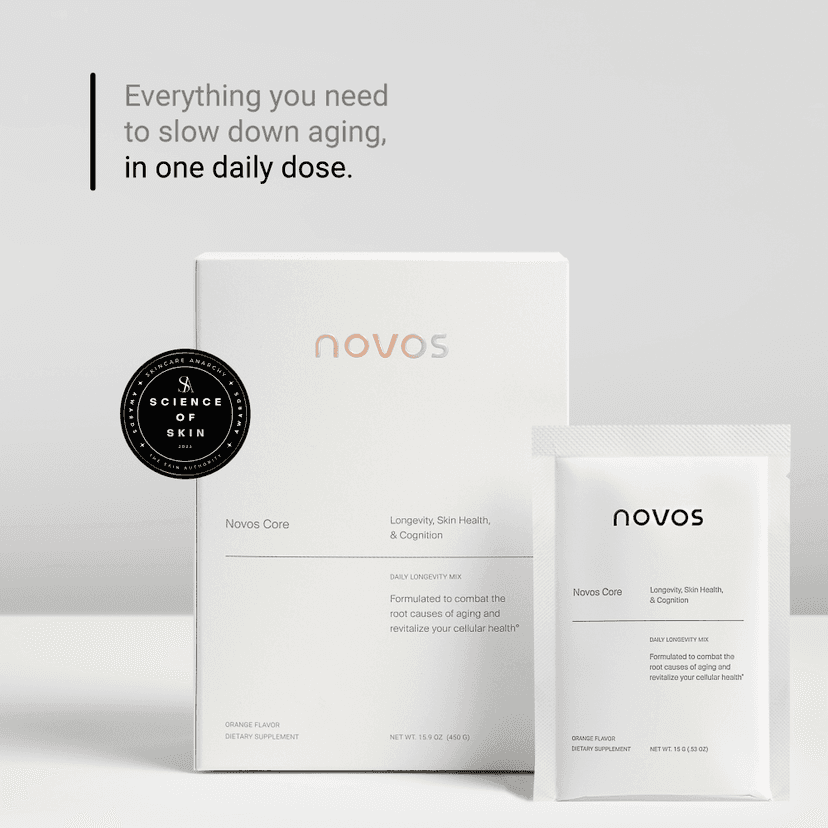As women reach their 40s, their bodies undergo significant hormonal changes that can impact their health and well-being. Understanding these changes and knowing which blood tests are essential can help in managing and diagnosing hormonal imbalances effectively. This article delves into the common symptoms of hormonal imbalance in women over 40 and highlights key blood tests that are crucial for maintaining optimal health.
Key Takeaways
- Hormonal imbalances in women over 40 can cause symptoms like hot flashes, weight gain, mood swings, and hair loss.
- Essential blood tests for diagnosing hormonal imbalances include estrogen, progesterone, thyroid function, FSH, and LH tests.
- Estrogen plays a critical role in women's health, affecting everything from menstrual cycles to bone health.
- Progesterone is essential for regulating menstrual cycles and maintaining pregnancy, and its imbalance can lead to various health issues.
- Thyroid health is crucial for overall hormonal balance, and thyroid function tests can help detect disorders that may affect metabolism and energy levels.
Common Symptoms of Hormonal Imbalance in Women Over 40
Hot Flashes and Night Sweats
One of the most common symptoms of hormonal imbalance in women over 40 is hot flashes and night sweats. These sudden feelings of heat can be intense and are often accompanied by sweating and a red, flushed face. Night sweats can disrupt sleep, leading to fatigue and irritability during the day.
Weight Gain and Metabolism Changes
Hormonal changes can slow down metabolism, making it easier to gain weight and harder to lose it. Women may notice an increase in belly fat, even if their diet and exercise routines haven't changed. This weight gain can also increase the risk of other health issues, such as diabetes and heart disease.
Mood Swings and Emotional Health
Fluctuating hormone levels can significantly impact emotional well-being. Women may experience mood swings, anxiety, and depression. These emotional changes can affect daily life and relationships, making it important to address them with a healthcare provider.
Hair Loss and Skin Changes
Hormonal imbalances can also affect hair and skin health. Women may notice thinning hair or hair loss, as well as changes in skin texture, such as dryness or increased acne. These changes can be distressing but are often manageable with the right treatment and care.
Understanding these symptoms is crucial for women over 40, as they can significantly impact quality of life. If you experience any of these symptoms, it's important to consult with a healthcare provider to determine the best course of action.
Essential Blood Tests for Diagnosing Hormonal Imbalance
Estrogen and Progesterone Levels
Estrogen and progesterone are key hormones in a woman's body. Testing their levels can help identify imbalances that may cause symptoms like hot flashes, mood swings, and irregular periods. These tests are often done through blood samples and can provide insight into conditions like menopause or hormonal disorders.
Thyroid Function Tests
Thyroid hormones play a crucial role in regulating metabolism. Thyroid function tests, including TSH, T3, and T4, can help diagnose thyroid imbalances that may lead to weight gain, fatigue, and mood changes. Regular monitoring is essential for managing thyroid health.
Follicle-Stimulating Hormone (FSH) Test
FSH is important for reproductive health. This test measures the level of FSH in the blood, which can indicate whether a woman is entering menopause. Elevated FSH levels are often a sign of reduced ovarian function.
Luteinizing Hormone (LH) Test
LH is another hormone critical for reproduction. The LH test helps determine the timing of ovulation and can be used to diagnose conditions like polycystic ovary syndrome (PCOS). High levels of LH may indicate an imbalance that affects fertility.
Regular hormone testing is vital for women experiencing severe symptoms or those undergoing treatments like hormone replacement therapy. Consult your doctor to determine the best testing schedule for your needs.
Understanding Estrogen and Its Impact on Women's Health
Types of Estrogen: Estrone, Estradiol, and Estriol
Estrogen isn't just one hormone; it's a group of hormones. The three main types are:
- Estrone (E1): The primary estrogen after menopause.
- Estradiol (E2): The most common estrogen before menopause, crucial for sexual function and overall health.
- Estriol (E3): Increases significantly during pregnancy.
Role of Estrogen in Menstrual Cycle and Reproductive Health
Estrogen plays a vital role in the menstrual cycle and reproductive health. Estradiol (E2), produced mainly by the ovaries, is essential for:
- Regulating the menstrual cycle
- Supporting pregnancy
- Maintaining healthy bones and skin
Effects of Low and High Estrogen Levels
Low estrogen levels can lead to:
- Irregular periods
- Hot flashes
- Mood swings
High estrogen levels might cause:
- Weight gain
- Fatigue
- Increased risk of certain cancers
Monitoring Estrogen Levels Through Blood Tests
Blood tests can measure estrogen levels to help diagnose hormonal imbalances. These tests are often done during specific phases of the menstrual cycle to get accurate readings. Here's a quick look at normal estradiol (E2) levels:
| Phase | Estradiol Level (pg/mL) |
|---|---|
| Follicular Phase | 19.5-144.2 |
| Periovulatory Phase | 64.9-356.7 |
| Luteal Phase | 55.8-214.2 |
| Postmenopausal | 32.2 or lower |
Regular monitoring of estrogen levels can help manage symptoms and maintain overall health.
The Importance of Progesterone in Women's Health
Functions of Progesterone in the Body
Progesterone is a hormone mainly produced by the ovaries. It plays a crucial role in regulating menstruation and supporting pregnancy. During the luteal phase of the menstrual cycle, progesterone helps prepare the uterus to receive a fertilized egg. If the egg is fertilized, progesterone levels remain high to support early pregnancy. If not, levels drop, leading to menstruation.
Symptoms of Progesterone Imbalance
Low levels of progesterone can cause various symptoms, including:
- Irregular periods
- Mood swings
- Trouble conceiving
High levels of progesterone are less common but can indicate certain health issues if they persist for a long time.
Testing Progesterone Levels
Progesterone levels are usually measured through blood tests. The timing of the test is important, as levels fluctuate throughout the menstrual cycle. Here is a table showing the typical progesterone levels at different stages:
| Phase | Range (ng/mL) | Range (nmol/L) |
|---|---|---|
| Follicular phase | 1 or lower | 3.18 or lower |
| Mid-cycle | 5-20 | 15.9-63.6 |
| 1st trimester | 11.2-90 | 35.62-286.2 |
| 2nd trimester | 25.6-89.4 | 81.41-284.29 |
| 3rd trimester | 48-above | 152.64-above |
| Postmenopausal | 1 or lower | 3.18 or lower |
Managing Progesterone Imbalance
Managing progesterone imbalance often involves lifestyle changes and medical treatments. Some strategies include:
- Lifestyle Changes: Maintaining a balanced diet, regular exercise, and stress management can help regulate hormone levels.
- Medical Treatments: Hormone replacement therapy (HRT) or other medications may be prescribed by a healthcare provider.
It's essential to consult with a healthcare provider for proper diagnosis and treatment if you suspect a progesterone imbalance. Early intervention can help manage symptoms and improve overall well-being.
Thyroid Health and Its Role in Hormonal Balance
Common Thyroid Disorders in Women Over 40
Thyroid disorders are more common in women, especially as they age. The two main types are hypothyroidism (underactive thyroid) and hyperthyroidism (overactive thyroid). Hypothyroidism can cause fatigue, weight gain, and depression, while hyperthyroidism may lead to anxiety, weight loss, and rapid heart rate.
Symptoms of Thyroid Imbalance
Symptoms of thyroid imbalance can vary widely:
- Hypothyroidism: Fatigue, weight gain, puffy face, cold intolerance, joint pain, constipation, dry skin, thinning hair, heavy menstrual periods, and depression.
- Hyperthyroidism: Anxiety, weight loss, rapid heart rate, tremors, frequent sweating, and irregular menstrual periods.
Thyroid Function Tests: TSH, T3, and T4
To diagnose thyroid disorders, doctors often use a combination of tests:
- TSH (Thyroid-Stimulating Hormone): Indicates how well the thyroid is responding to the pituitary gland.
- T4 (Thyroxine): The main hormone produced by the thyroid gland.
- T3 (Triiodothyronine): The active form of thyroid hormone, converted from T4.
| Test | Normal Range |
|---|---|
| TSH | 0.5-5 mIU/L |
| T4 | 5-12 µg/dL |
| T3 | 80-220 ng/dL |
Treatment Options for Thyroid Imbalance
Treatment depends on whether the thyroid is underactive or overactive:
- Hypothyroidism: Usually treated with synthetic thyroid hormone (levothyroxine).
- Hyperthyroidism: May be treated with medications, radioactive iodine, or surgery.
It's crucial to monitor thyroid health regularly, especially for women over 40, to maintain overall hormonal balance and well-being.
Postnatal Health: Hormonal Changes After Childbirth
Common Postnatal Hormonal Imbalances
After childbirth, women often experience significant hormonal shifts. These changes can lead to various imbalances such as low estrogen, high prolactin, and thyroid issues. These imbalances can affect physical and emotional well-being.
Impact on Mental Health and Well-being
Hormonal changes post-childbirth can greatly impact mental health. Many women experience mood swings, anxiety, and even postpartum depression. It's crucial to monitor these symptoms and seek help if needed.
Blood Tests for Postnatal Hormonal Health
To diagnose hormonal imbalances after childbirth, several blood tests can be performed:
- Estrogen and Progesterone Levels: These hormones drop significantly after delivery.
- Thyroid Function Tests: To check for postpartum thyroiditis.
- Prolactin Levels: High levels can affect menstrual cycles and milk production.
Strategies for Restoring Hormonal Balance Postpartum
Restoring hormonal balance after childbirth involves several strategies:
- Healthy Diet: Eating a balanced diet rich in nutrients.
- Regular Exercise: Helps in maintaining overall health and reducing stress.
- Adequate Sleep: Essential for recovery and hormonal balance.
- Medical Consultation: Regular check-ups with a healthcare provider to monitor hormone levels and overall health.
Postnatal hormonal changes are natural, but managing them effectively is key to ensuring both physical and mental well-being. Always consult with a healthcare provider for personalized advice.
Conclusion
Understanding hormonal imbalances and the key blood tests for women over 40 is crucial for maintaining overall health and well-being. As women age, their hormone levels naturally fluctuate, leading to various symptoms that can impact daily life. By recognizing these changes and seeking appropriate medical advice, women can take proactive steps to manage their health. Regular hormone testing can provide valuable insights, helping to identify imbalances early and allowing for timely interventions. Whether dealing with menopause, thyroid issues, or other hormone-related conditions, staying informed and working closely with healthcare providers can make a significant difference in quality of life. Remember, knowledge is power, and being aware of your body's changes is the first step towards a healthier future.
Frequently Asked Questions
What are the common symptoms of hormonal imbalance in women over 40?
Women over 40 may experience hot flashes, night sweats, weight gain, mood swings, hair loss, and changes in skin.
Which blood tests are essential for diagnosing hormonal imbalance?
Key tests include estrogen and progesterone levels, thyroid function tests, FSH, and LH tests.
How does estrogen affect women's health?
Estrogen plays a role in the menstrual cycle, reproductive health, bone health, and can impact mood and skin.
Why is progesterone important for women?
Progesterone helps regulate the menstrual cycle, supports pregnancy, and can affect mood and sleep.
What are common thyroid disorders in women over 40?
Common disorders include hypothyroidism and hyperthyroidism, which can cause fatigue, weight changes, and mood swings.
How do hormones change after childbirth?
After childbirth, women can experience imbalances that affect mental health, mood, and overall well-being.



















